It’s early morning at the Ion, and founders, inventors and investors start to trickle in to the shiny new 266,000-square-foot innovation hub off Main Street in Midtown Houston.
Some grab a coffee and croissant from Common Bond on the ground floor before making their way to the nearby prototyping lab, where they can design products with a 3D printer and laser cutter. Others lug merchandise — whimsical wallpaper samples and cans of craft-quality cocktails, among others — upstairs to their co-working office space.
Later, a founder fires up the podcast room to record a segment with an investor, and when early evening rolls around, the ground floor buzzes as the seeds for investment are planted over dinner and drinks at the hub’s star-chef-run bars and restaurants.
That’s the vision for daily life at the Ion, the anchor of Houston’s budding 16-acre innovation district, which is planning its opening celebration in May. It’s the brainchild of Rice University leaders and city officials, who hope it will put Houston solidly on the startup map, rivaling Silicon Valley.
The Ion was envisioned as a base for startups in the accelerator or incubator phase, established innovative companies, venture capitalists and academics. “The space stimulates exciting conversations about what could be possible,” says Jan Odegard, the Ion’s executive director.
In the coming years, the Rice Management Company, which manages the Ion and oversaw its development, will spearhead the construction of several additional innovation district buildings, including more office space, retail and residential properties.
A New Vision for Midtown
The idea for a Houston innovation hub gained momentum in 2018 when Amazon was searching for a site for its second headquarters. When the retailer bypassed Houston altogether, it was a wake-up call for the local business community.
Later that year, Rice President David Leebron and other leaders met with Houston Mayor Sylvester Turner to lay out a vision for the city’s future. The city had already been thinking about these issues; in late 2016, Mayor Turner had convened a taskforce to explore expanding Houston’s innovation economy. The taskforce had recommended that the city focus on finding a place where innovation activity could be centralized, similar to what had been done in cities such as Chicago and Cincinnati. Where to place the resulting innovation district, however, was a subject of debate.
During the meeting, Leebron mentioned the Sears building on Rice-owned land, built in 1939, and how it could be transformed into a vibrant mixed use space to support startups. The Rice Management Company (RMC), which oversees the university’s $6.2 billion endowment fund, had recently bought out the 28 years remaining on Sears’ lease. Rice currently owns 16 acres in the area, which connects downtown to the Medical Center and is less than a mile from Rice.
The mayoral taskforce visited a number of cities that had successfully undertaken such initiatives. Rice Business Professor Yael Hochberg, the head of the Rice Entrepreneurship Initiative, was a member of that taskforce, and had been involved early on in the planning of 1871, Chicago’s technology hub and business incubator, housed in a historic market that city leaders reinvented to support early stage, growth stage and corporate innovators. “Putting everything together in one space — that is the secret sauce,” says Hochberg. “When you do that, you start to see the serendipitous interactions that really lead to new innovative activity. It helps entrepreneurs find other entrepreneurs, resources and investors.”
“The concentration of activity is what lights the rocket,” she adds. “We saw how this really helped entrepreneurial activity in Chicago take off, when we did this at 1871 and MATTER in the Chicago Merchandise Mart. We saw the potential for doing something similar in Houston, if the right location could be identified and secured.”
RMC representatives described how the old Sears department store could be transformed into a modern innovation hub that would benefit students. Brad Burke, the managing director of the Rice Alliance for Technology and Entrepreneurship, an entrepreneurship initiative founded in 2000 to support startups at Rice and in the community, had seen the transformative impact 1871 had on Chicago’s entrepreneurial system and believed Rice could do even more.
“For two decades we have been building the entrepreneurial ecosystem in Houston with thousands of startups, investors, mentors, corporations and service providers, but until the Ion, we didn’t have a central hub with the density and capacity to enable the interactions necessary to change the trajectory of startups in Houston,” Burke says.
At the time, Houston lacked a single location that connected entrepreneurs, corporations, the venture capital community, the government and civic community, and academia. Yet, “when all of those are working in concert together with each other, that really makes an innovation ecosystem cook,” says Kyle Judah, executive director of Rice’s Liu Idea Lab for Innovation and Entrepreneurship (Lilie), Rice’s center for entrepreneurship education and resources for students and faculty.
The RMC broke ground in the summer of 2019, and the Ion’s $132 million transformation was completed last summer. A hole cut a hole through the center of the previously dark Sears building allows light to spill in, and the 16-foot ceilings create an airy feel.
“The building is really unlike anything else in Houston,” says Ryan LeVasseur, managing director of direct real estate for the RMC. Historically, LeVasseur adds, Houston has relied on a few select industries for its economic development. Part of the thinking behind the Ion was to help the city further diversify.
Before and during construction, LeVasseur visited iconic innovation districts for inspiration, including the Cortex Innovation Community in Saint Louis, Missouri, the Kendall Square Initiative in Boston and Tech Square in midtown Atlanta. Odegard, who’s from Norway, toured the Oslo House of Innovation to source ideas, and both Odegard and LeVasseur helped secure the Ion’s membership in the Global Institute on Innovation Districts.
Collaborations and Collisions
The Ion aims to be a place where innovators can collide and partnerships are born. In a sprawling city like Houston, a central, energizing location for innovators to meet is essential for creativity and growth.
“It’s really hard to feel energy and excitement about what’s happening in a city if the entrepreneurship and innovation community are so spread out,” says Judah.
The Ion secured Microsoft and Chevron Technology Ventures as founding partners and anchor tenants. Houston-based Baker Botts is a founding partner, too, and has an office in the building. Ion partner TXRX Labs, a Houston nonprofit, operates the expansive Ion Prototyping Lab on the center’s first floor. The 6,500 square foot lab is filled with cutting-edge equipment that startups can use to develop and refine their products, while TXRX staff provide hands-on training for entrepreneurs. Methodist Hospital used the space to design and 3-D print a prototype of a new cognitive function test for patients.
A massive soldering machine sits in the lab’s electronics workspace. Nearby are a series of circular lights designed by TXRX for installation along Houston’s bayou. Across the hall in the fabrication workspace, founders toil away on laser cutters and use lathes to shape and slice metal and wood. At the investor studio on the same floor, visiting investors can connect with founders.
Members can also partake in the Ion’s programming, as can the general public. Recent programs have included “How to Start a Startup” and “Perfecting Your Pitch.” Baker Botts has also hosted free 30-minute consultations for founders.
On the Ion’s second floor is a bustling flexible workspace run in partnership with co-working space Common Desk. Startups and small businesses can choose from several workspace options, including shared and private offices or full suites with their own kitchenettes and conference rooms. Founders and owners collide and network at the workspace’s coffee bar, and there’s also a Wellness Room for nursing mothers.
Current tenants include All Hands Craft Cocktails, which makes “bar strength” cocktails in cans; the nonprofit BikeHouston; water testing company Water Lens; luxury designer wallpaper maker Olivia + Poppy; and Snapstream, a media workspace that helps companies tell their stories with videos, founded by Rice alum Rakesh Agrawal ’97, among others.
Members and the general public can also eat at the Ion’s multiple restaurants. The Lymbar, chef David Cordúa’s craft cocktail bar and restaurant, is scheduled to open early this summer. At Late August — a nod to the time of year when Sears’ iconic catalogue came out — chef Dawn Burrell and Chris Williams of Lucille’s will serve up Afro-Asian fusion. Second Draught, a 2,000-square-foot taproom run by Rice alum Adam Cryer ’01 and his wife Sarah Pope, will serve rotating beers on tap from some 70 Houston-based brewing companies.
Floors three through five are traditional office spaces that startups can move into as they grow, building out and renting space longer term. The Ion’s bottom floor is made up of an amphitheater and open meeting space with rolling white boards. Out front in the plaza, the community can gather at tables and chairs. A 10-story parking garage for around 1,600 cars is in the works.
Greentown Labs, North America’s largest climatetech incubator, is open down the street in a former Fiesta grocery store, and a dozen more mixed-use buildings will be built in the innovation district over the next decade.
Room to Grow
For Rice Business students and alumni, the Ion provides opportunities for professional connections and networking, and a home base for budding businesses.
“We have an increasing number of MBA students who want to pursue entrepreneurial startups,” Hochberg says, “and the Ion can provide space for these fledging startups to launch.”
For the past three years, Rice Business has been ranked the top graduate entrepreneurship program in the country, due to the efforts of Lilie and Rice Alliance. “But while we’ve expanded and strengthened the innovation ecosystem on campus, the city itself hasn’t developed in lockstep,” says Hochberg. One of the Ion’s goals is for Rice graduates to no longer have to leave Houston to connect with investors and secure capital. After graduation, the Ion can be a landing spot for their ventures.
“It’s really a financial investment for future students,” LeVasseur says. “The Ion is attracting companies that think differently and providing opportunities for students at all of Houston’s universities to stay here for their careers.”
In 2020, the Ion received a $1.5 million grant from the Economic Development Administration to fund an accelerator hub, which will include the Ion Smart and Resilient Cities Accelerator, the Rice Alliance Clean Energy Accelerator, and DivInc Accelerator, a program for minority- and women-led startups. “The Ion’s Accelerator Hub is a unique collaboration that benefits all accelerators in Houston. As the most diverse city in the U.S., it is important that entrepreneurial resources are available to a diverse and an inclusive community, and the Hub will help ensure their success,” Burke says.
Last November, founders from Houston and beyond pitched their business concepts live in the Ion’s amphitheater during the Houston Startup Showcase, a year-long pitch competition. Cancer patient engagement platform Ankr was crowned the winner and received a $10,000 prize and $10,000 in legal support from Ion partner Baker Botts.
The annual Rice Business Plan Competition, in which some 42 startups from universities across the globe compete for more than $1.5 million dollars in prizes, will also benefit. The Rice Alliance hopes to host competition programming at the facility. Another idea is for finalists, in addition to prize money, to win working space at the Ion. “We’ve had several RBPC startups move their company to Texas as a result of meeting investors at the competition. The Ion will provide another incentive to attract those startups to build their companies in Houston,” Burke says. “We’re also looking at possibly hosting the Rice Alliance’s OwlSpark Accelerator at the Ion, which would provide a place for these Rice startups to reside at the end of the program.”
For Odegard, success also comes with connections — for example, if Microsoft or Chevron executives get drawn into a founder’s product demonstration or a captivating conversation. “That’s what we’re aiming for,” he says.
Organizers expect the innovation district, anchored by the Ion, to evolve into a true destination, a walkable, bikeable, livable district, a so-called “15-minute city” where everything community members need to live and work is just 15 minutes away by foot or bike.
“The Ion is just the tip of the iceberg,” Hochberg says. “The innovation ecosystem that we are building has the potential to be a game-changer for Houston and its startups. The platform and potential is there for Houston to build an ecosystem that truly expands its economic base, and that takes advantage of all the diversity that Houston has to offer.”



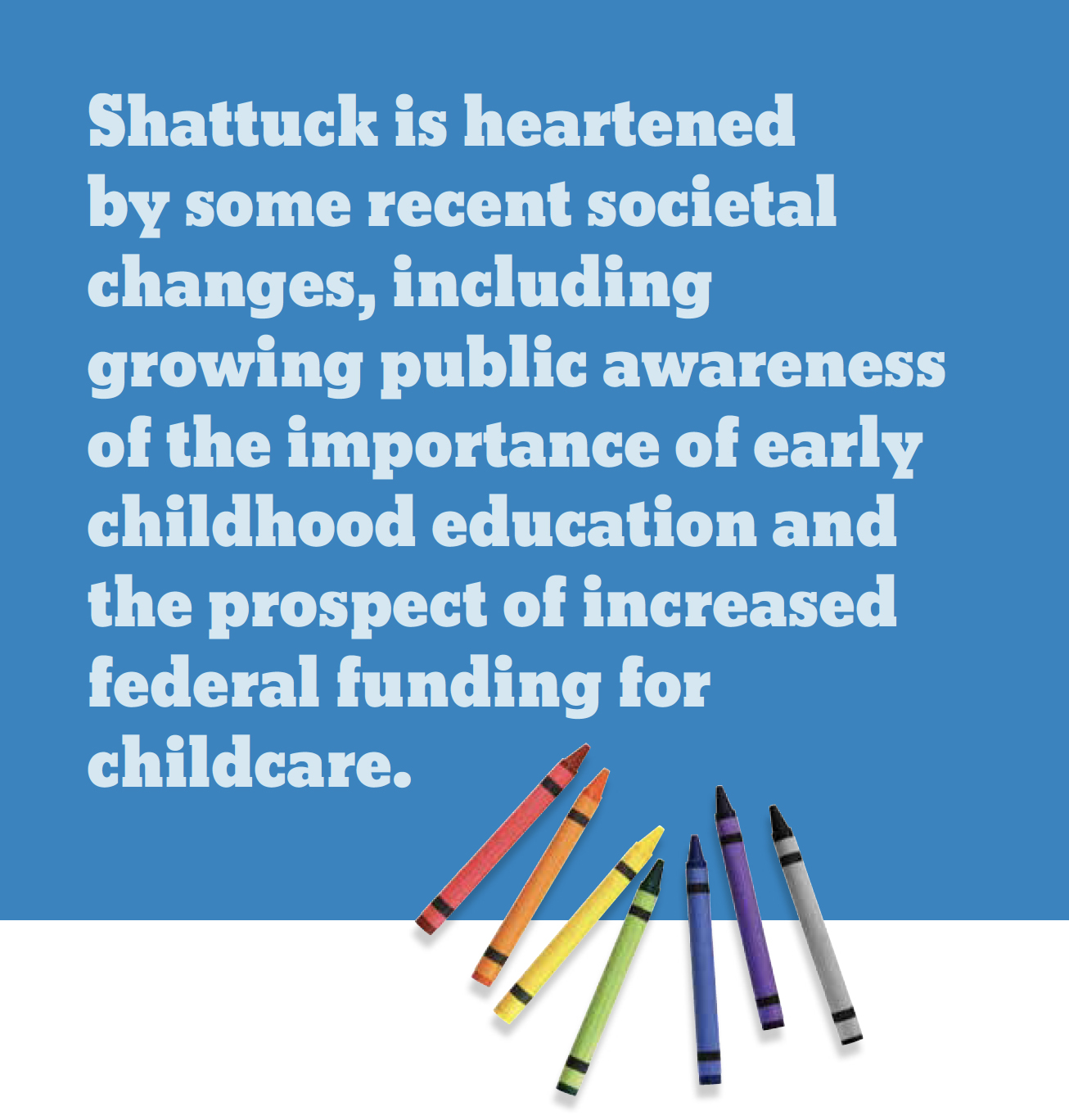 She did something similar as an assistant vice president at United Way of the Texas Gulf Coast (now the United Way of Greater Houston), where in addition to working on strategic planning and board development for the organization itself, she created the Management Assistance Program. Known today as Nonprofit Connection, the program has for more than 30 years helped the volunteers and professional staff of nonprofit agencies become more effective and efficient at delivering services with limited resources.
She did something similar as an assistant vice president at United Way of the Texas Gulf Coast (now the United Way of Greater Houston), where in addition to working on strategic planning and board development for the organization itself, she created the Management Assistance Program. Known today as Nonprofit Connection, the program has for more than 30 years helped the volunteers and professional staff of nonprofit agencies become more effective and efficient at delivering services with limited resources.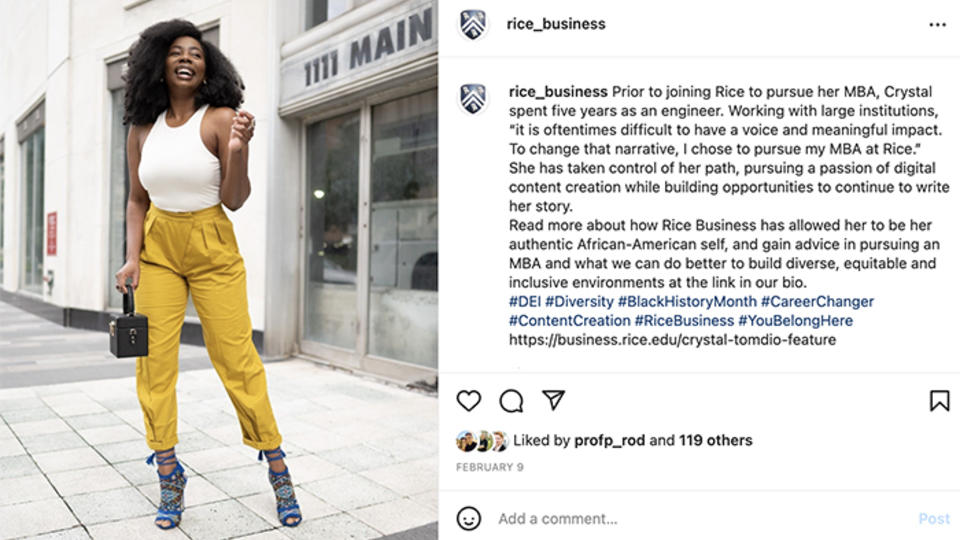


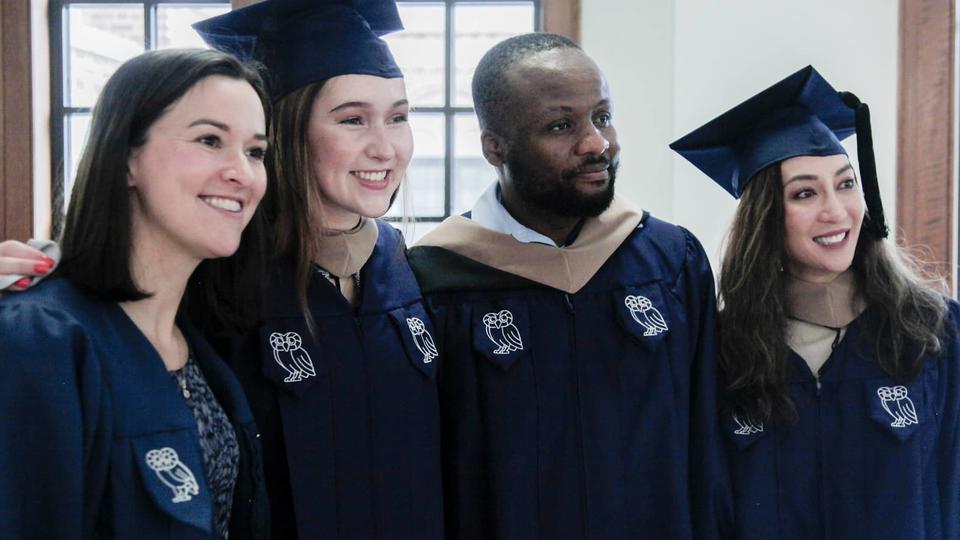
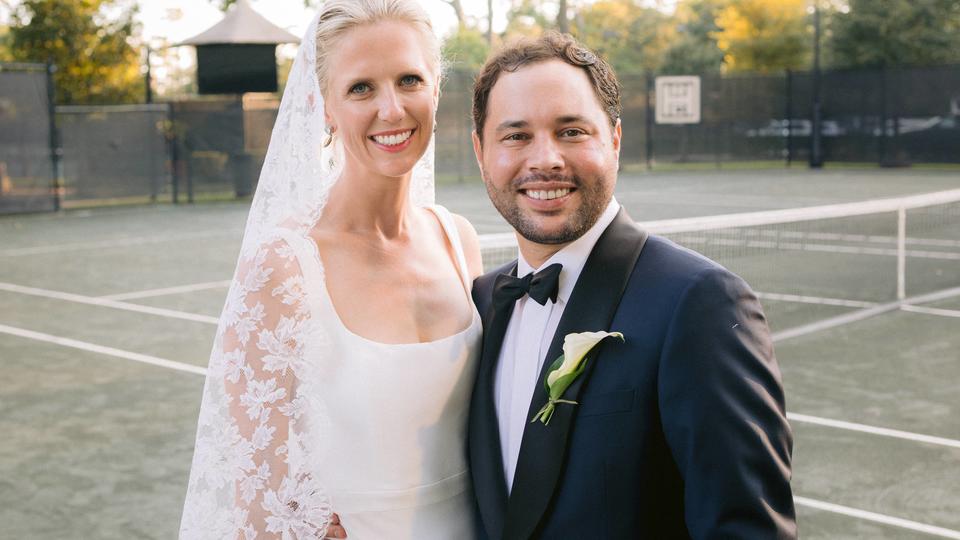







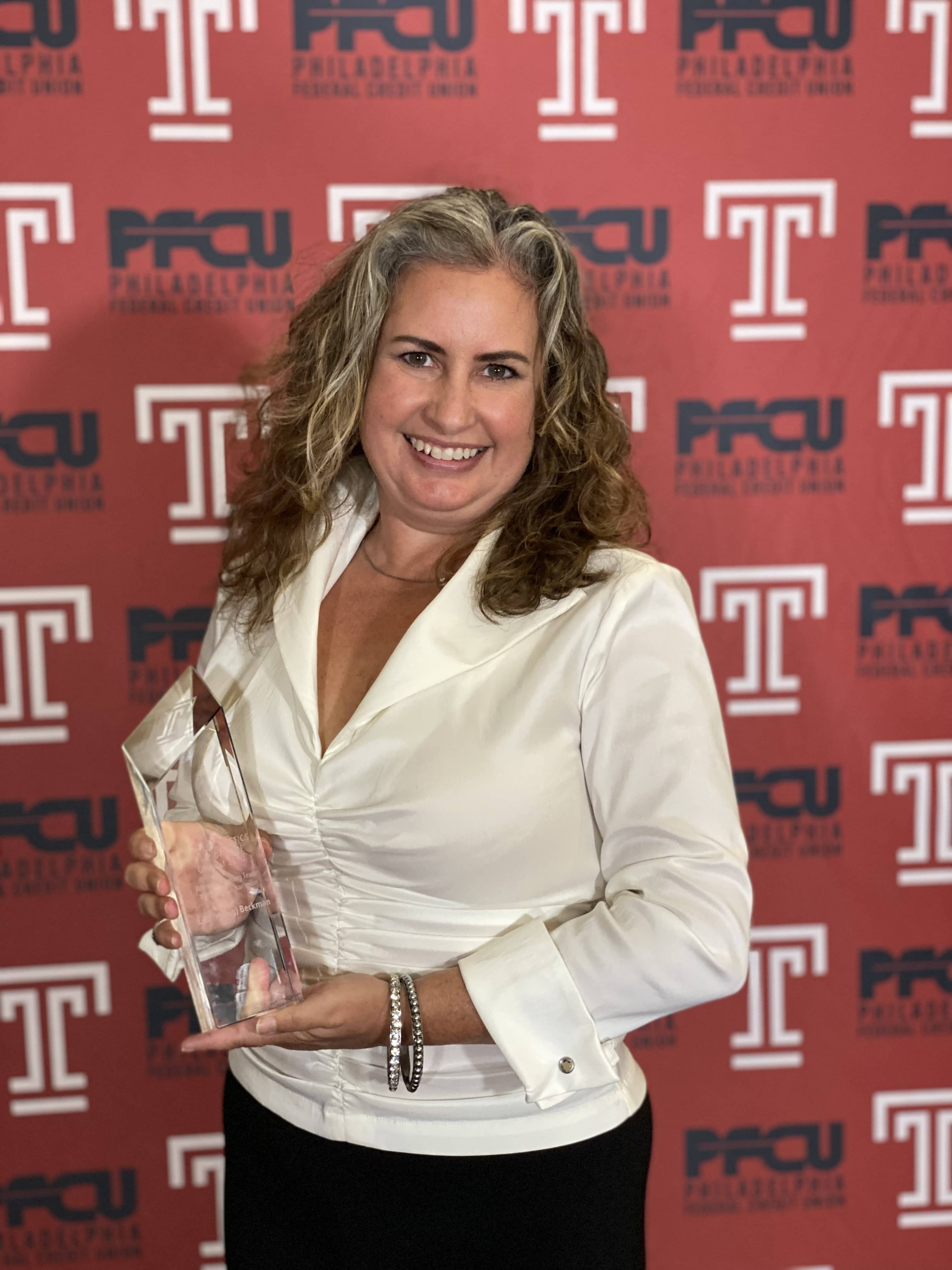
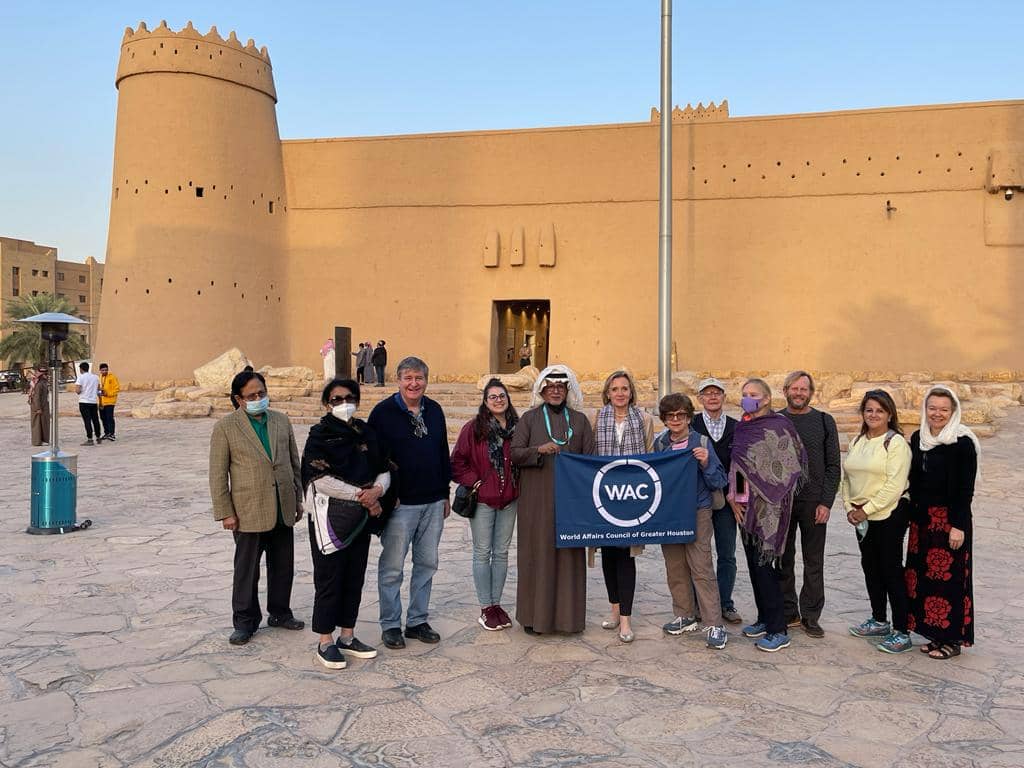
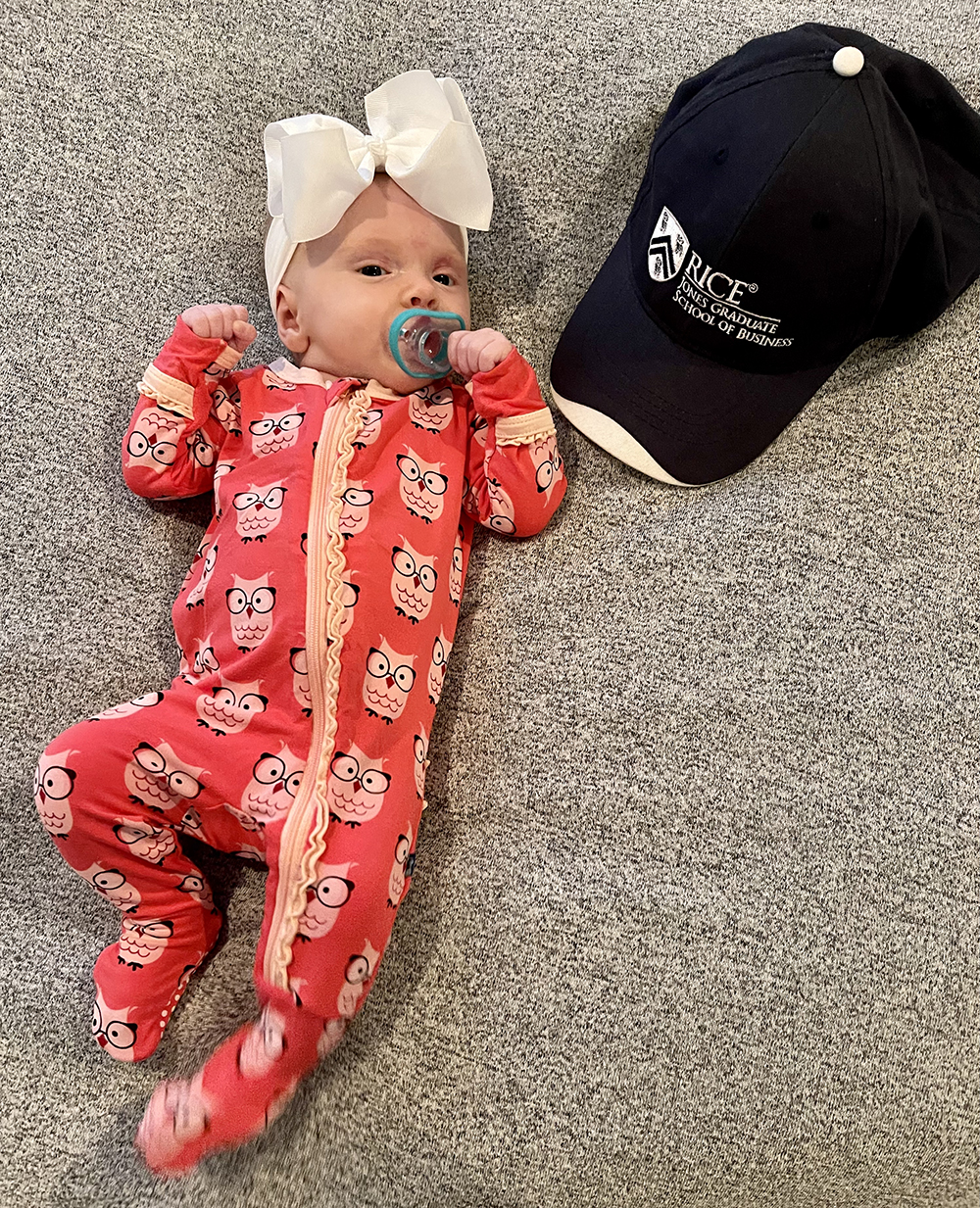


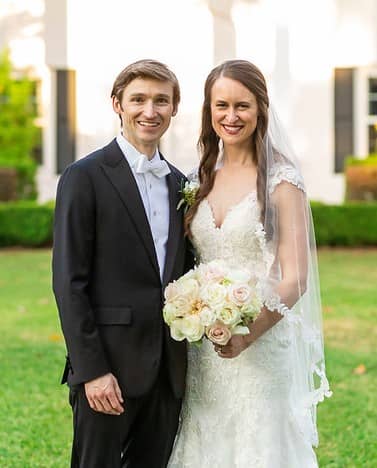


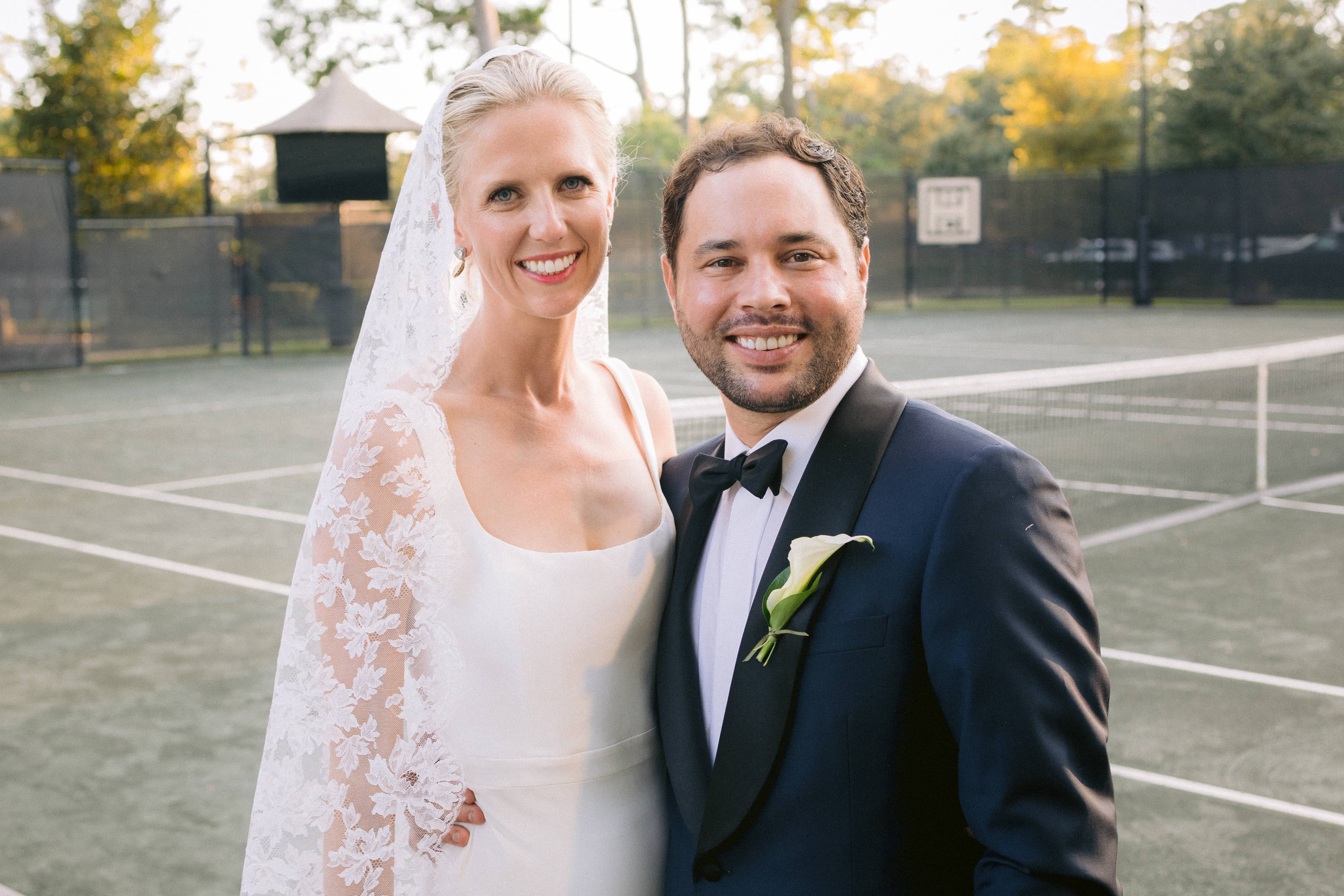













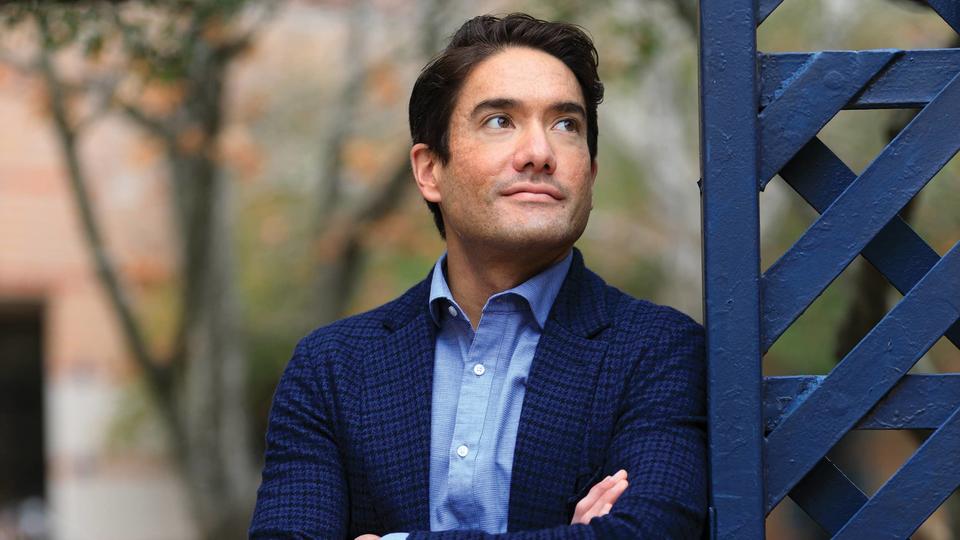
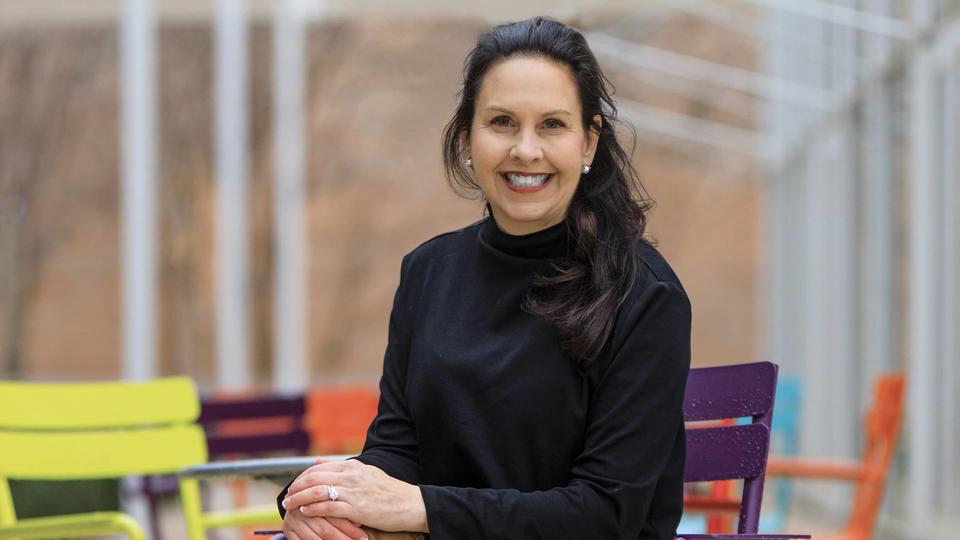





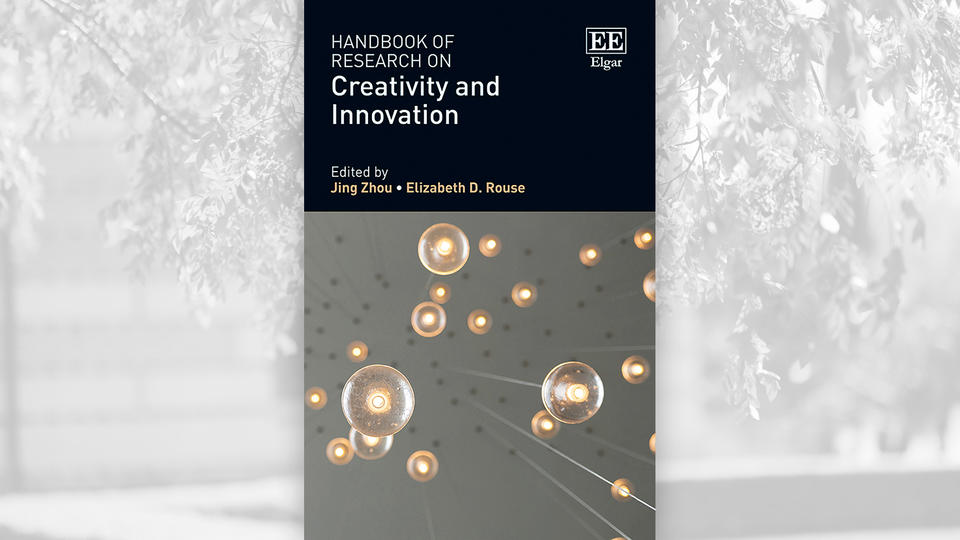





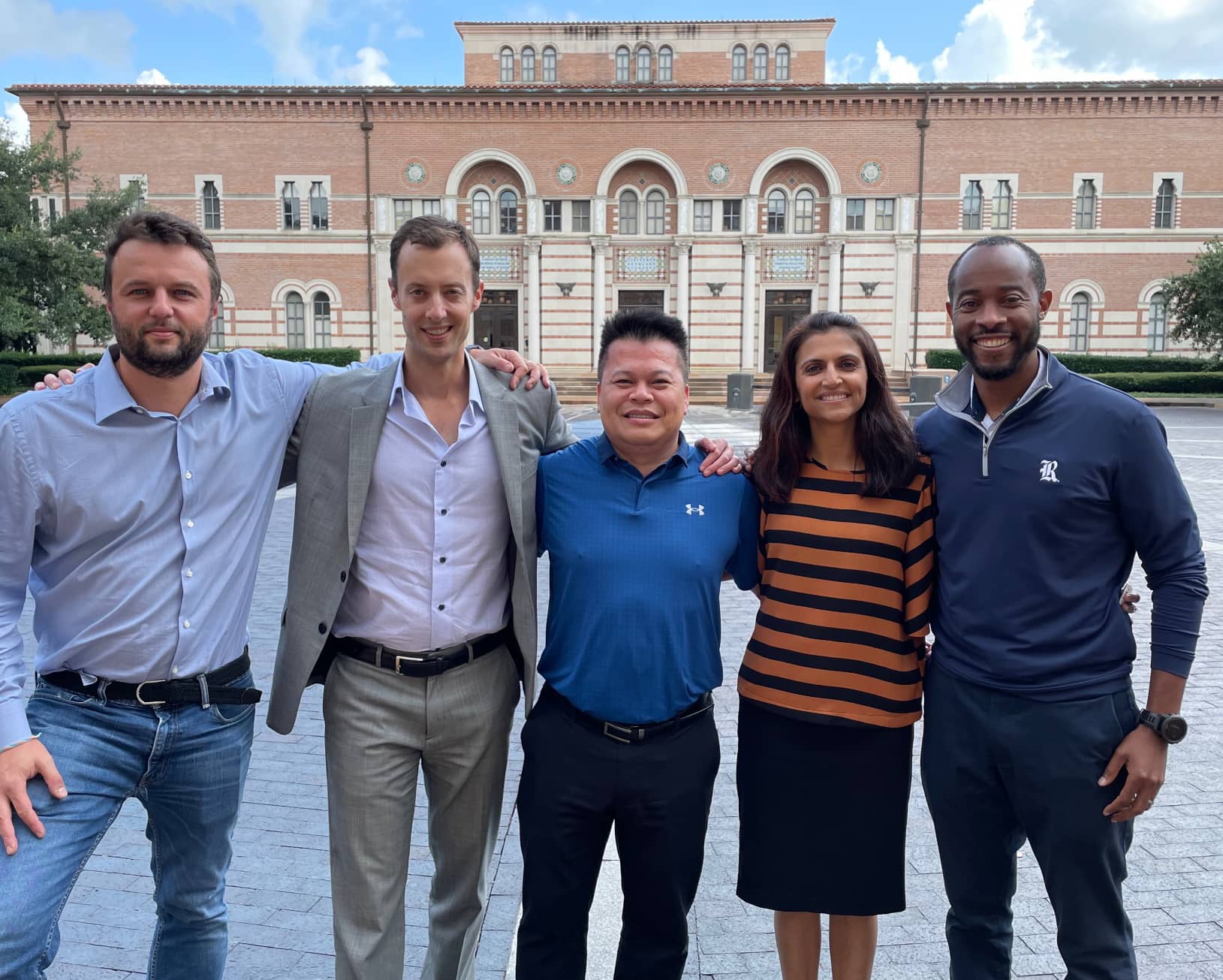
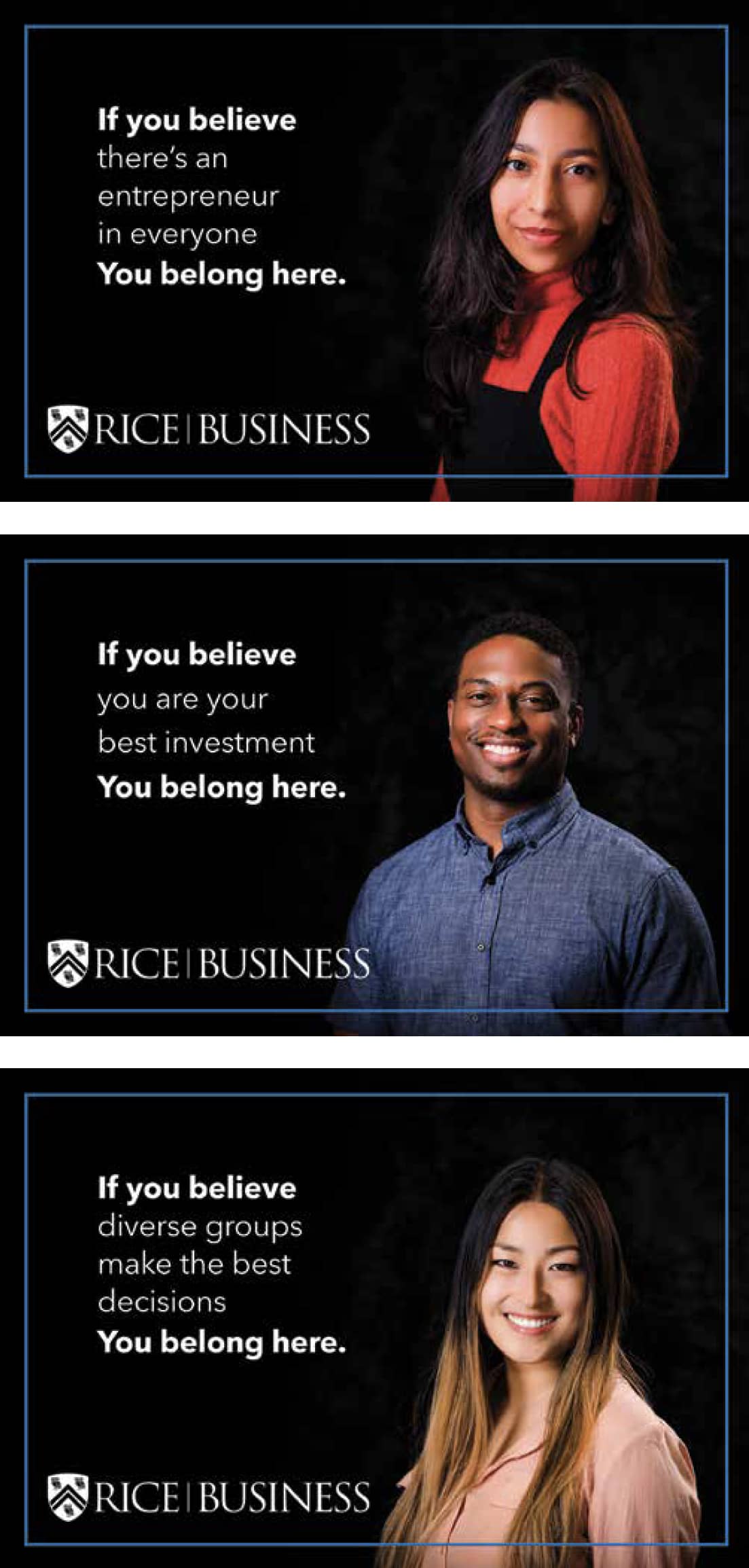 Rice Business has launched a new national ad campaign as part of our effort to continue to grow the school’s brand. In partnership with the digital advertising agency Primacy, the Rice Business marketing team built the campaign on the foundation of the school’s tagline: “You Belong Here.”
Rice Business has launched a new national ad campaign as part of our effort to continue to grow the school’s brand. In partnership with the digital advertising agency Primacy, the Rice Business marketing team built the campaign on the foundation of the school’s tagline: “You Belong Here.”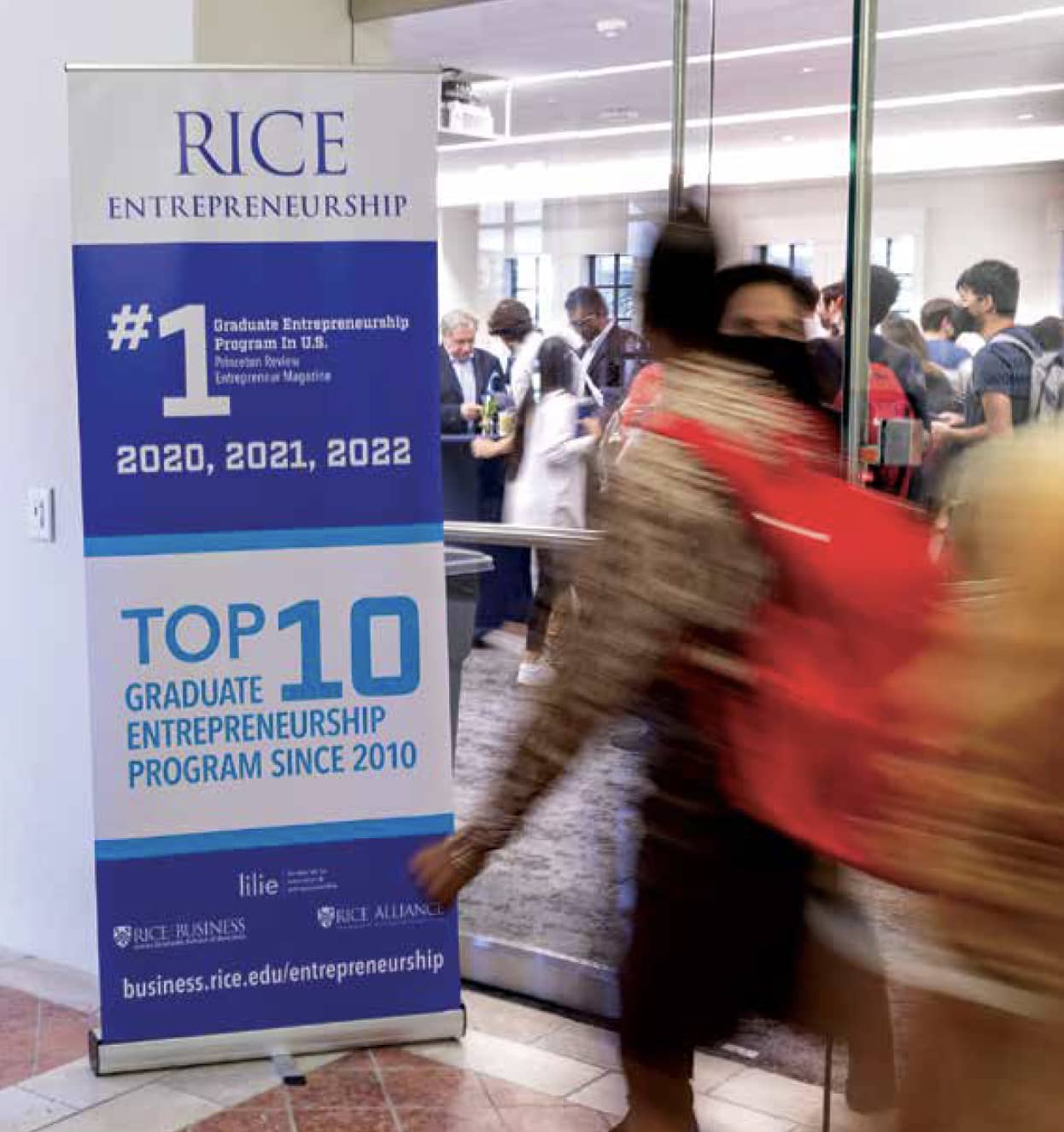 “Our No. 1 ranking is a reflection of the work and effort of our entrepreneurship faculty and staff to continually expand our programs and impact on behalf of our student and faculty founders,” said Rice Business Dean Peter Rodriguez. “Our three-years-running spot at the top is a testament to the Rice faculty, the depth and breadth of resources that are available to entrepreneurs and innovators during their time at Rice and beyond, and the students who have capitalized on their time at Rice to learn and launch their ventures from campus to the community.”
“Our No. 1 ranking is a reflection of the work and effort of our entrepreneurship faculty and staff to continually expand our programs and impact on behalf of our student and faculty founders,” said Rice Business Dean Peter Rodriguez. “Our three-years-running spot at the top is a testament to the Rice faculty, the depth and breadth of resources that are available to entrepreneurs and innovators during their time at Rice and beyond, and the students who have capitalized on their time at Rice to learn and launch their ventures from campus to the community.”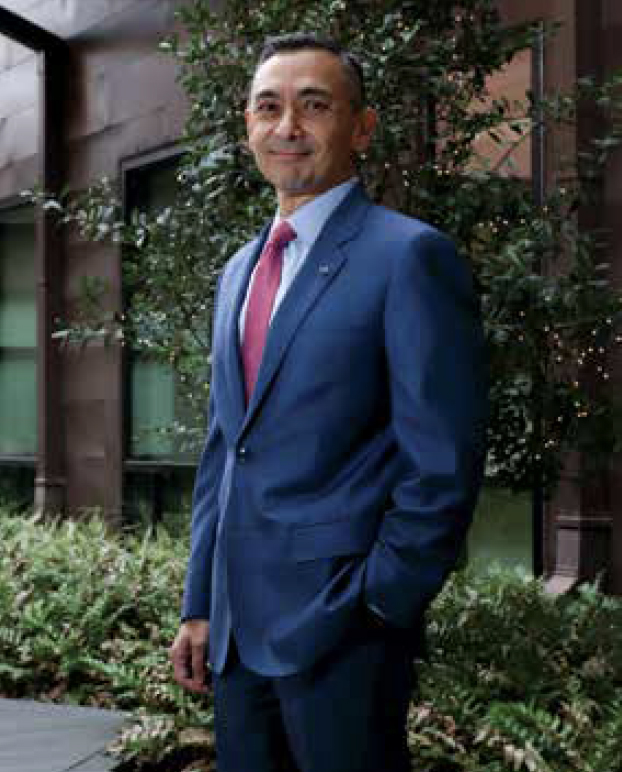 The Federal Reserve Bank of Dallas appointed Rice Business Dean Peter Rodriguez to its Houston Branch board of directors for a three-year term beginning Jan. 1, 2022.
The Federal Reserve Bank of Dallas appointed Rice Business Dean Peter Rodriguez to its Houston Branch board of directors for a three-year term beginning Jan. 1, 2022.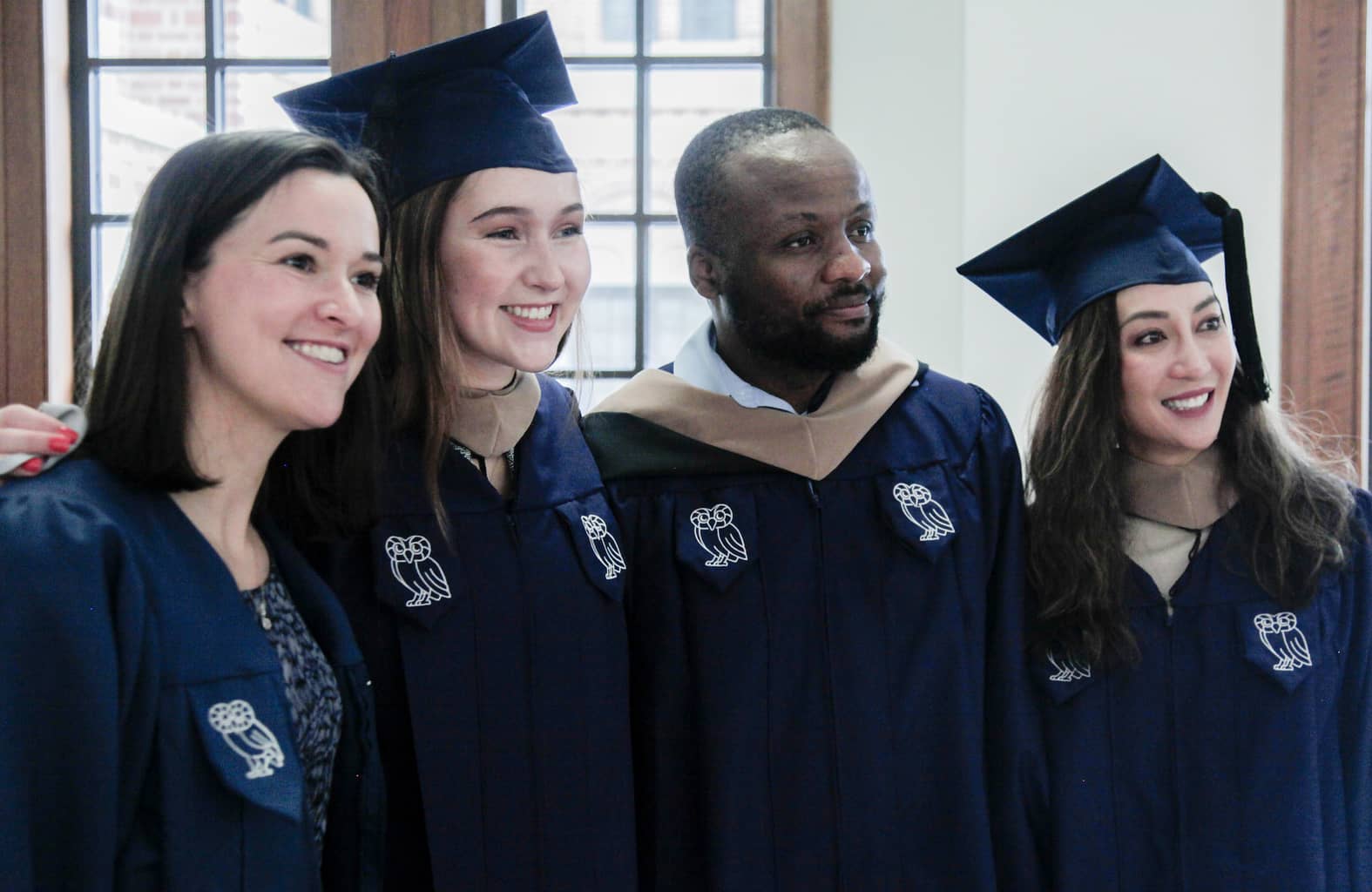
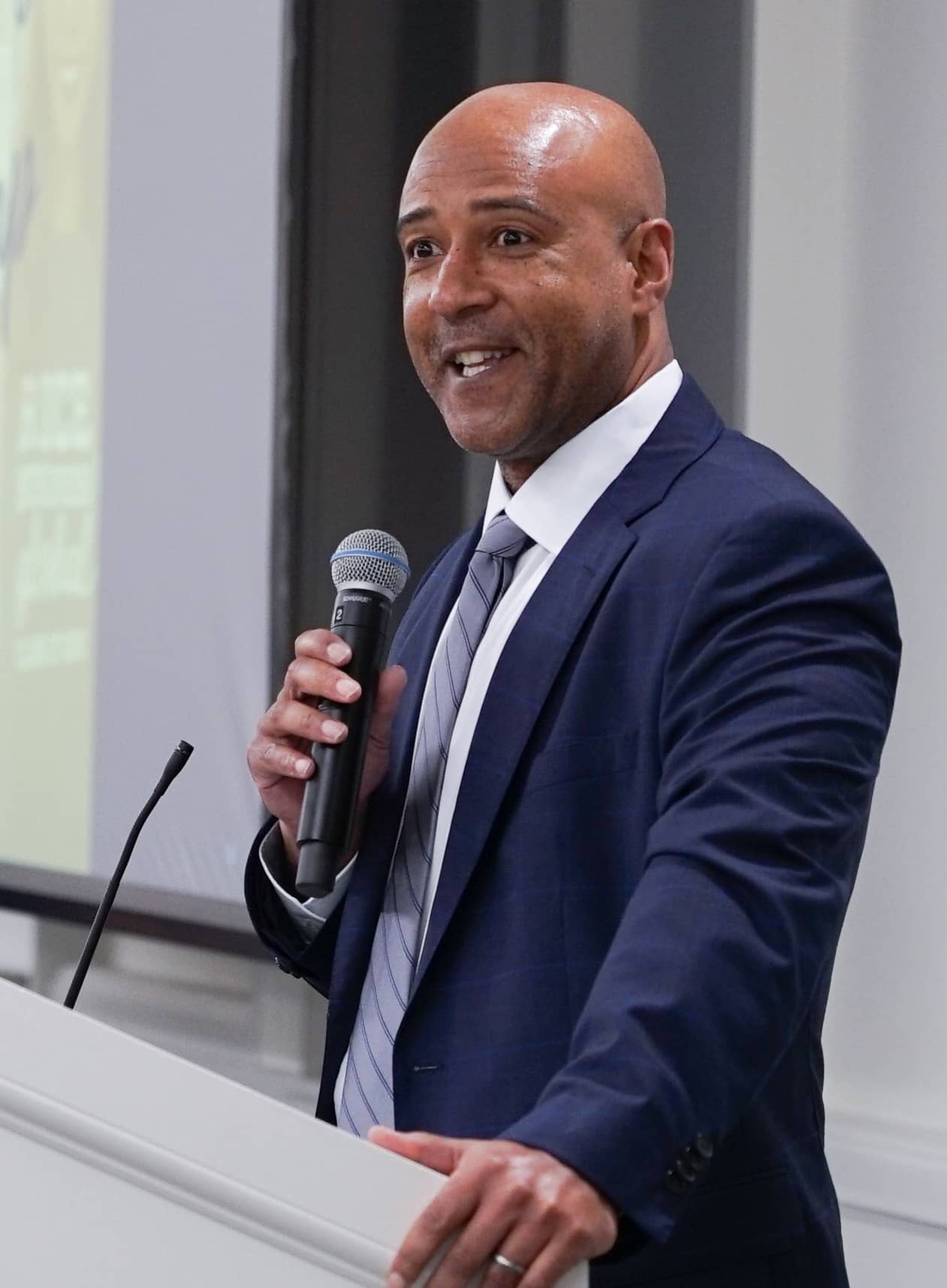 Rice University Provost Reginald DesRoches has been named the next president of Rice. The university’s board of trustees selected DesRoches, an internationally recognized structural engineer and earthquake resilience expert, after a nationwide search for an academic leader to take command of the university. DesRoches will succeed President David Leebron, who previously announced his plan to step down after the end of the current academic year. DesRoches will take office on July 1.
Rice University Provost Reginald DesRoches has been named the next president of Rice. The university’s board of trustees selected DesRoches, an internationally recognized structural engineer and earthquake resilience expert, after a nationwide search for an academic leader to take command of the university. DesRoches will succeed President David Leebron, who previously announced his plan to step down after the end of the current academic year. DesRoches will take office on July 1.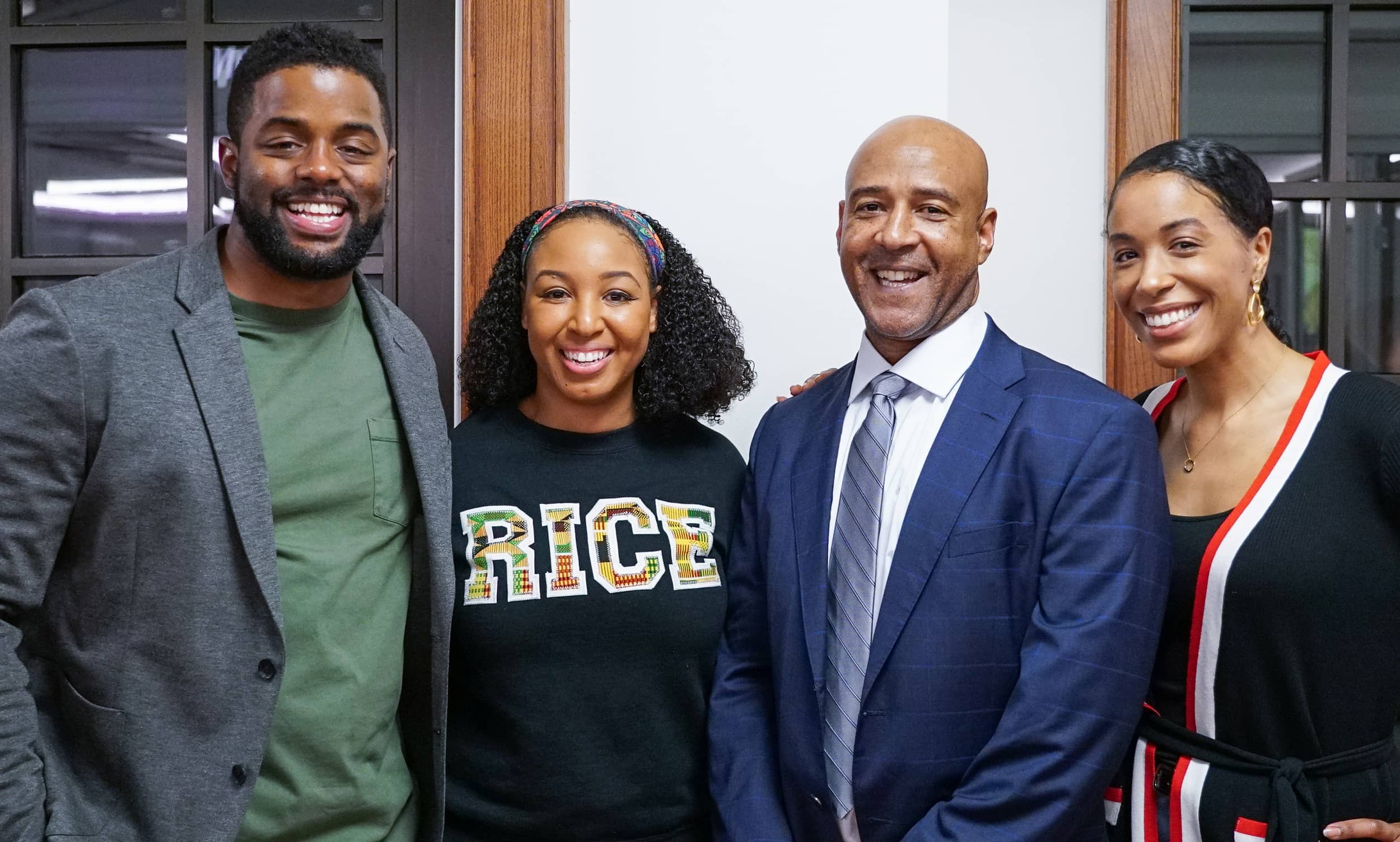
 In November, Rice Business hosted the 13th annual Rice Energy Finance Summit, with a dual-delivery format that brought executives, investors, advisers and policymakers together to share their perspectives with students, alumni, faculty and staff. Four hundred industry professionals and students attended the 2021 conference in person, and about 150 people joined virtually to hear from keynote speakers Bobby Tudor, the chairman of Tudor, Pickering, Holt & Co., and Deborah Byers, the Americas Industry Leader at Ernst & Young.
In November, Rice Business hosted the 13th annual Rice Energy Finance Summit, with a dual-delivery format that brought executives, investors, advisers and policymakers together to share their perspectives with students, alumni, faculty and staff. Four hundred industry professionals and students attended the 2021 conference in person, and about 150 people joined virtually to hear from keynote speakers Bobby Tudor, the chairman of Tudor, Pickering, Holt & Co., and Deborah Byers, the Americas Industry Leader at Ernst & Young.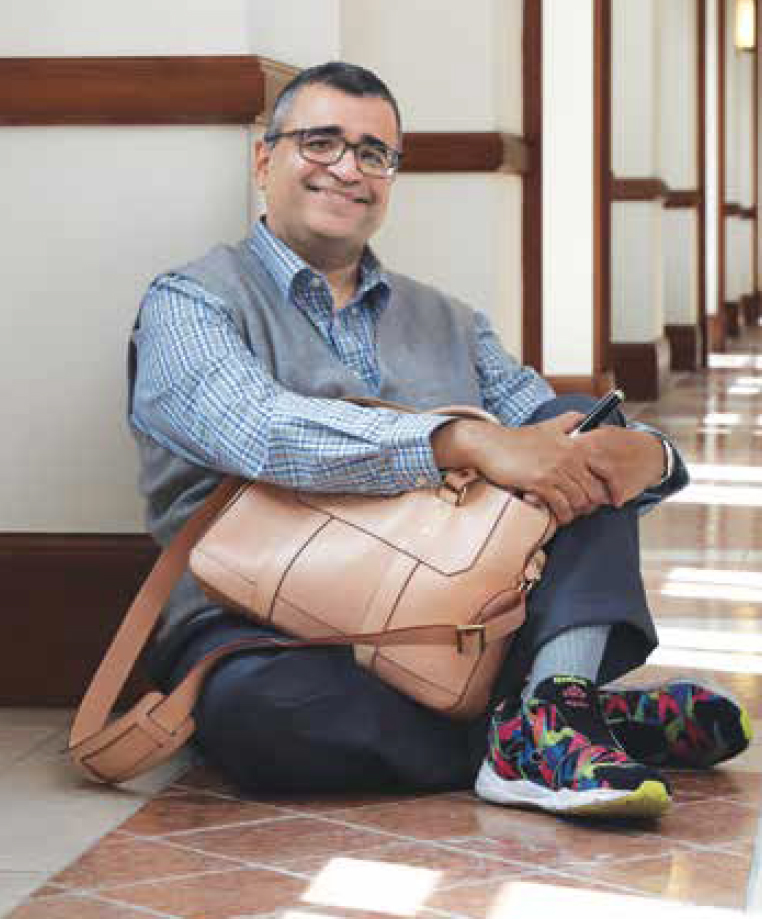 Professor Vikas Mittal and his co-authors were among the winners of the Financial Times’ Responsible Business Education Awards for a research paper that explored ways to improve cancer outcomes by drawing on digital and marketing expertise.
Professor Vikas Mittal and his co-authors were among the winners of the Financial Times’ Responsible Business Education Awards for a research paper that explored ways to improve cancer outcomes by drawing on digital and marketing expertise.


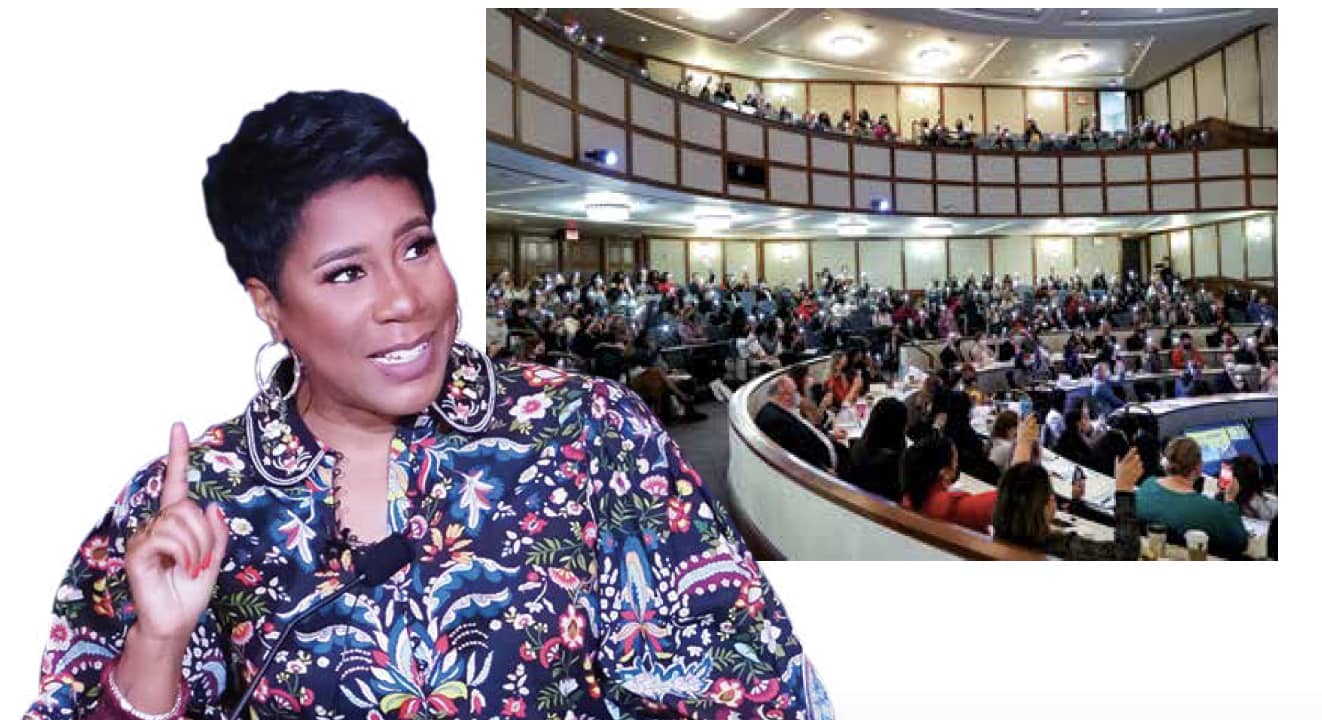
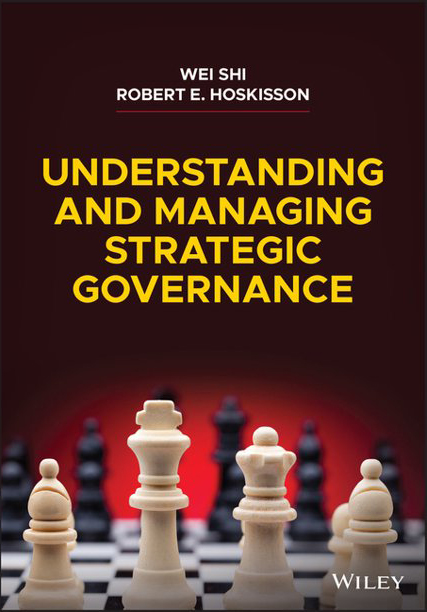 In a new book, “Understanding and Managing Strategic Governance” (Wiley, 2021), Robert E. Hoskisson, the George R. Brown Professor Emeritus of Management at Rice Business, explores the interplay between corporate governance and a firm’s strategic decision-making. With co-author Wei Shi, an associate professor of management at Miami Herbert Business School, Hoskisson examines the influence that “governance actors,” including boards of directors, activist investors, institutional investors and securities analysts, have on important strategic decisions — and the consequences of their influence. The book also offers insights for executives on how to manage the conflicting interests of multiple governance actors and leverage the influence of these groups to make effective strategic decisions.
In a new book, “Understanding and Managing Strategic Governance” (Wiley, 2021), Robert E. Hoskisson, the George R. Brown Professor Emeritus of Management at Rice Business, explores the interplay between corporate governance and a firm’s strategic decision-making. With co-author Wei Shi, an associate professor of management at Miami Herbert Business School, Hoskisson examines the influence that “governance actors,” including boards of directors, activist investors, institutional investors and securities analysts, have on important strategic decisions — and the consequences of their influence. The book also offers insights for executives on how to manage the conflicting interests of multiple governance actors and leverage the influence of these groups to make effective strategic decisions.